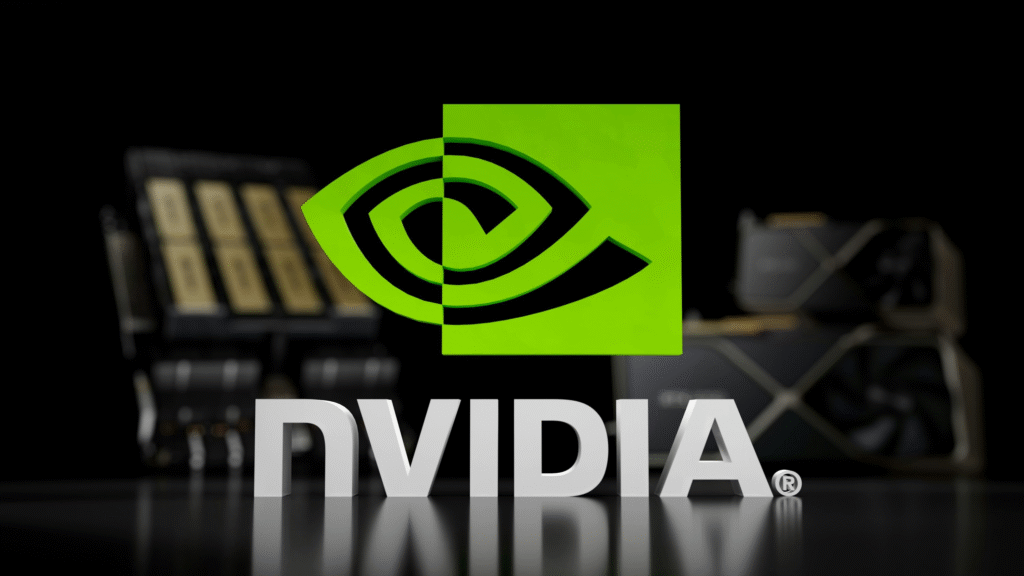It might look like just one trade when Peter Thiel’s hedge fund sold all of its Nvidia shares, but for anyone who is actively following the AI boom, it feels like a signal. Nvidia is not simply another tech company. The company makes the chips that enable AI training, data centers, self-driving cars, and a lot of the world’s most complex computer systems. People pay attention when someone as important as Thiel leaves a job that pays about $100 million. They don’t simply want to know what happened; they want to know what it means.
The regulatory report showed that Thiel Macro sold about 537,742 Nvidia shares in the third quarter. There were no more shares left in the fund at the end of September. Nvidia had already hit record highs in value at the time of the decision. For a short time, it was the most valuable corporation in the world, which was a sign of the fast growth of artificial intelligence.
The timing is what catches most investors’ attention first. The results for Nvidia’s third quarter were due just weeks after the sale, and the business has been under a lot of scrutiny. Some analysts think that the AI business may finally be approaching a phase where excitement must be backed up by real earnings, not simply estimates and promises. Thiel’s choice to leave before that earnings checkpoint suggests he was unsure, whether it was because he was being careful, because of facts, because of a gut feeling, or a mix of all three.

This wasn’t an isolated move, which added to the speculation. SoftBank also sold its Nvidia share about the same time. The fact that two big investors were leaving at the same time made some think that something bigger might be happening. People suddenly stopped talking about “Will Nvidia keep growing?” and started asking, “Are we at the peak of the AI valuation frenzy?”
For those of us who have seen technological cycles before, like the dot-com boom and the crypto boom, they tend to happen again. At start, just a few daring people put money in early. Then the smart money comes in. In the end, hope turns into speed. People stop wondering if something should be worth its market cap and instead focus on the fact that it already is. Someone essential always says “enough” and stands away at the end. A lot of people think that Thiel, who has a long history of predicting changes in the market before anybody else saw them coming, may have just made that move.
But it would be wrong to say that Thiel’s leaving means that he is completely giving up on technology or new ideas. His fund still has a lot of money in big firms like Apple and Microsoft. That element is significant because it changes the meaning: this is not a rejection of the IT industry; it is a rebalancing. Nvidia is different because it plays a big role in AI. Nvidia does well as long as the AI industry keeps growing. But if its momentum slows down, the downside is far worse than that of companies with a wider range of products. Thiel may have thought that the risk-reward balance had gone too far when he sold everything instead of just some of it.
Even for regular investors, the shift makes them think more deeply. Have prices gone up too much? Are businesses and governments really ready to invest in AI at the rate that markets expect? Will demand for chips keep soaring at unprecedented speeds, or will problems with supply and infrastructure cause delays?
I think this moment is interesting because it’s the first time in years that we can see real conflict between excitement about AI and trepidation about investing in it. Nvidia became the hub of the AI movement when it became a hot topic of discourse. Some analysts said that Nvidia’s stock was like having “the picks and shovels in a gold rush,” indicating that even if some AI startups failed, Nvidia would still win since everyone required their chips. The question has changed: how many gold mines are there really? How many people can buy shovels?
A shift like this can sometimes be invigorating, even grounding. It reminds us that even in a time of excitement and forecasts about the future, experienced investors base their choices on the basics. They keep an eye on valuations, figure out how much danger is involved, and walk away when the figures go too high. It reminds the typical person that momentum is not a plan. Nvidia may still grow, and AI may still do well, but no stock goes up forever.
Of all, history also demonstrates that people might get the wrong idea about big exits. Nvidia may keep getting record performances. The AI sector could grow even more, creating new industries we can’t yet envision. In five years, some people may wonder why anyone ever doubted Nvidia’s promise. That’s the beauty—and the burden—of putting money into new technology: you might be rewarded or penalized for your faith, and no one knows what will happen.
But there are some things that can’t be ignored. Nvidia’s stock price is based on the idea that it will do almost everything right. There is more competition. Governments are putting limits on the export of AI hardware. Businesses are in a hurry to make their own chips. Even big companies like Apple and Google are looking at other options that could slowly make them less dependent on Nvidia. None of these things will definitely cause a decline, but they do put pressure on Nvidia that wasn’t there when it was rising before.
Thiel’s choice is especially meaningful because of who he is. Thiel has never been afraid to go against the grain. When others said Facebook was a bad idea, he was one of the first people to support it. He put money into space exploration when others thought rocket startups were silly. When he shifts out of a position totally, it’s almost never by accident. The gesture has meaning, even if it isn’t explained to the public.
But it’s crucial to stay balanced even when people are guessing. Nvidia is still a giant. Its chips still run the most advanced AI systems in the world. It has orders from all across the world. Governments and businesses are still putting a lot of money into AI infrastructure. One fund leaving doesn’t affect any of it. What it does change is how people think. Investors need to know if the AI boom is still going up quickly or if it is now in the portion of the mountain where it is hard to find a good place to stand.
Sometimes the most telling things about markets aren’t big crashes or big rallies, but small decisions made in boardrooms and made public through routine filings. Peter Thiel’s departure may only be a small part of Nvidia’s long journey. Or it could be remembered as the first clear indicator that investors were starting to lose faith in AI’s boundless potential.








